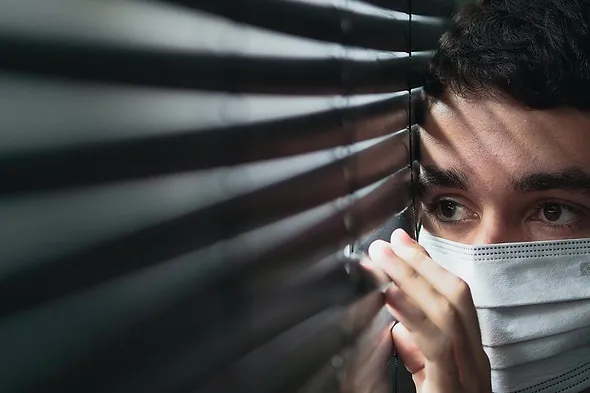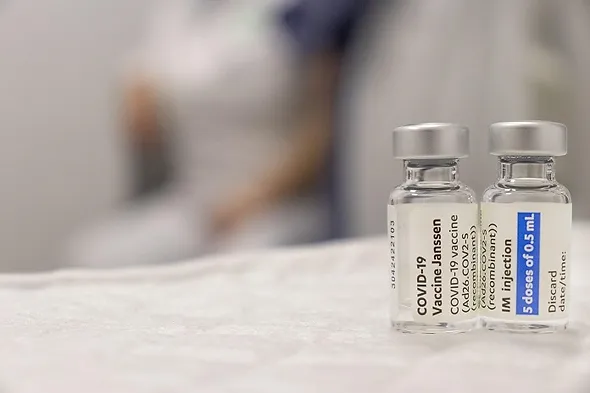The pandemic has come and gone, but many still feel the after-effects. Post-Covid Syndrome is characterized by various symptoms, including fatigue, anxiety, and depression.
Covid-19 can cause a relapse of chronic skin diseases. But luckily, Heliotherapy Institute provides the best light therapy devices for skin treatment and many valuable tips for better results.
While there is no one-size-fits-all cure, there are some things that you can do to help reduce the impact of Post-Covid Syndrome on your life. This article will share our best tips for coping with it.
What is post-COVID syndrome?
The post-COVID syndrome is a condition that can occur after you have had the coronavirus. It is also called “long COVID.” The symptoms can last for weeks or even months after the virus. While most people who contract COVID-19 will recover without any long-term effects, a small percentage of people will develop the post-COVID syndrome.
There is currently no known cure for this syndrome, but there are some things that you can do to help reduce your symptoms.
Reasons for Post-Covid-Syndrome
There are a few possible explanations for why Post-Covid-Syndrome occurs. The most common reason is that the virus attacks the lungs and other respiratory organs. It can lead to inflammation and fluid build-up in these organs. Also, Post-Covid-Syndrome can be caused by an immune system response to the virus. In some cases, the body’s immune system will overreact to the presence of the virus and begin attacking healthy cells and tissue.
It could be that the virus itself lingers in the body and causes long-term damage. Or, it could be that the body’s immune system is weakened after fighting off the infection, leaving people susceptible to other illnesses. Additionally, psychological factors like anxiety and stress can contribute to Post-Covid-Syndrome.
What are the main symptoms of post-COVID syndrome?
Many people who recover from Covid-19 are left with Post-Covid-Syndrome, a set of symptoms that can last for weeks or even months after the initial infection. It presents a unique set of symptoms not seen in other diseases, and it is still unclear why this happens. Post-Covid Syndrome can include fatigue, shortness of breath, anxiety, brain fog, and chest pain. Some people also experience heart problems and gastrointestinal issues.

Nervous system symptoms
Post covid syndrome is caused by damage to the nervous system, which can occur during a viral infection. Not everyone experiences the same symptoms of post-Covid-19, but some of the more commonly occurring in up to 80% of patients include:
- Headache
- Dizziness
- Lightheadedness
- Brain fog, confusion
- Trouble concentrating
- Memory problems
- Depression and anxiety
- Sleep problems
But some people also report less common symptoms, such as:
- Postural orthostatic tachycardia syndrome (POTS) is when you feel faint or dizzy standing up due to a sudden drop in blood pressure. It can cause fainting, fatigue, and brain fog.
- Chronic inflammatory response syndrome (CIRS) is caused by inflammation that leads to fatigue, brain fog, sleep disturbances, and headaches. CIRS is often seen in people who have had Lyme disease.
- Post-viral fatigue syndrome (PVFS) is a condition that can cause extreme fatigue, brain fog, and sleep problems. PVFS can last for years after the initial infection.
Problems with lungs and cardiovascular system
Covid-19 is a novel coronavirus that has quickly spread throughout the world. The virus attacks the respiratory system and can cause severe lung damage. It can lead to difficulty breathing, chest pain, and fatigue. In extreme cases, it can even lead to death.
Post-Covid Syndrome seems to target the cardiovascular system specifically. The most common symptom reported is shortness of breath which can be debilitating for some patients. Other symptoms include chest pain, heart palpitations, fatigue, and syncope. However, it can also lead to heart failure, strokes, and blood clots.
All of these symptoms can be caused by other severe conditions, so it is essential to see your doctor immediately if you experience any of them.
Symptoms related to muscles and joints
The most common symptom related to muscles and joints is fatigue. It can be hard to describe, but it’s different from the exhaustion you feel after a long day or week. People with Post-Covid-Syndrome often report feeling drained, even if they’ve had a whole night’s sleep and exercise intolerance. Other symptoms include joint pain, muscle aches and weakness, and stiffness in the morning or after rest periods. These symptoms can make it challenging to move around and do daily activities.
Tips for managing long Covid symptoms
It can be highly frustrating to deal with long Covid symptoms, especially when you don’t know how to manage them. Here are a few tips that may help you find some relief:
- Get plenty of rest and sleep. It will help your body heal and repair itself.
- Eat a healthy diet. Nutritious foods will give your immune system the boost it needs to fight off infection.
- Exercise regularly. Even moderate exercise can help improve your overall health and well-being.
- Drink plenty of fluids. Staying hydrated is vital for all aspects of your health, including recovery from illness.
- Take supplements like omega-three fatty acids, B vitamins, and probiotics.
- Practice stress management techniques like meditation or yoga.
- See a therapist discuss your experiences and emotions related to Post-Covid Syndrome.
The pandemic has taken a toll on everyone’s mental health. If you’re struggling with your mental health, there are things you can do to feel better. Here are some tips:
- Talk to someone who will understand and listen – a friend, family member, therapist, or counselor. Talking about how you feel can be very helpful.
- Do something that makes you happy every day. It could be listening to music, spending time outside, reading, watching your favorite TV show, or cooking your favorite meal. Whatever it is, make sure it’s something that brings joy into your life.
If you’re struggling with Post-Covid-Syndrome, know that you’re not alone, and there are things you can do to feel better. Reach out to a friend or family member, find activities that bring you joy, exercise, and avoid using substances to cope. Post-Covid-Syndrome may be difficult, but there is hope.

The best way to reduce long COVID risks
There are a few things that you can do to reduce the risk of Post-Covid Syndrome:
- Get vaccinated as soon as possible. The vaccine will help your body build up immunity to the virus and reduce the chances of getting sick in the first place.
- If you do get sick, make sure to get treated early. The sooner you start treatment, the better your chances of recovery.
- Get plenty of rest and eat a healthy diet. It will help your body recover from the virus and reduce the risk of Post-Covid Syndrome.
- Avoid smoking and exposure to secondhand smoke. It can damage your lungs and make Post-Covid Syndrome more likely.
How are persistent COVID-19 symptoms treated?
There is no one-size-fits-all answer to this question, as the best way to treat persistent COVID-19 symptoms will vary from person to person. In some cases, a doctor may prescribe medications to manage symptoms. Post-Covid syndrome is a new phenomenon, and more research is needed to determine the most effective treatments.
If you are struggling with persistent COVID-19 symptoms, you must speak to your doctor to discuss a treatment plan that is right for you. Most people will eventually recover from Post-Covid Syndrome with proper care and support.
Summary
There’s no doubt that the Covid pandemic has changed our lives in so many ways. One of these changes is Post-Covid-Syndrome (PCS). It is a condition characterized by fatigue, brain fog, and anxiety. But you can do some simple things to reduce the symptoms of PCS. In this article, we’ve shared some of the best tips, proven through experience. If you are still experiencing symptoms after following these self-care measures, you must consult a healthcare provider to determine the best course of treatment.
*****





























